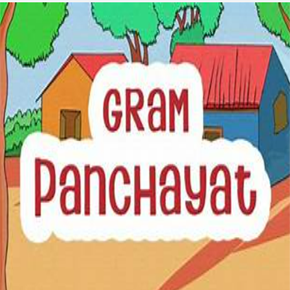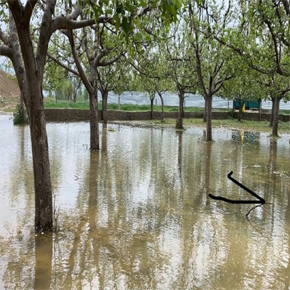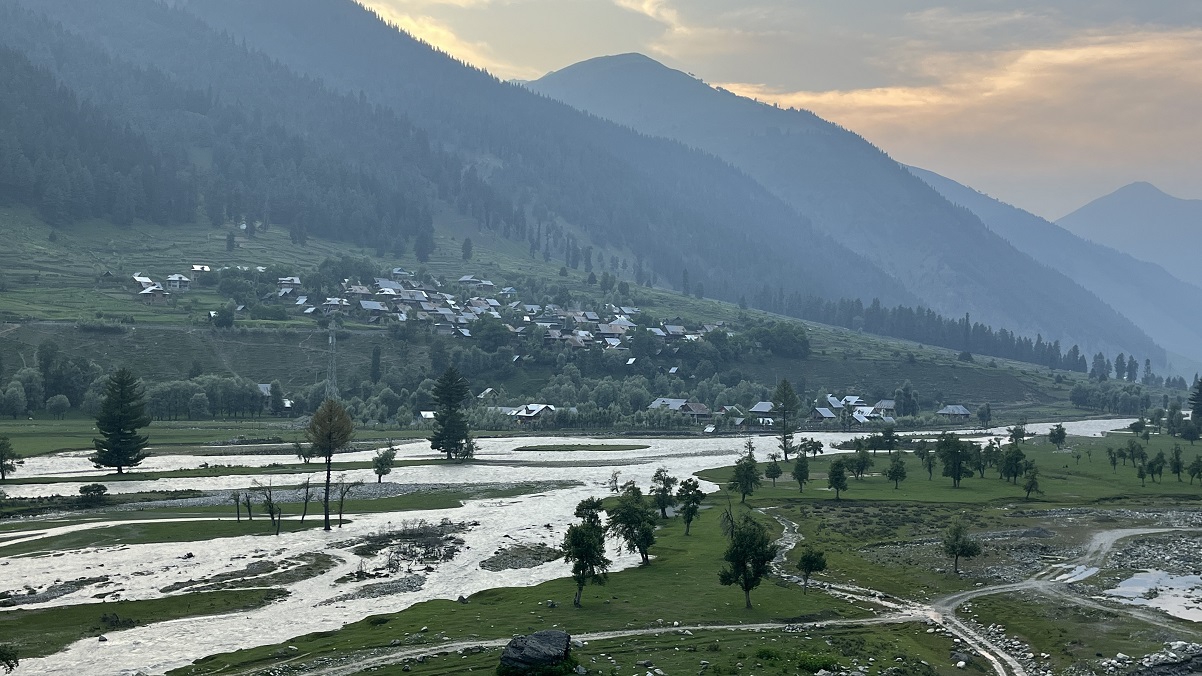FARMERS affected by the Srinagar Semi Ring Road project in central Kashmir’s Budgam district are rejoicing, as the Jammu & Kashmir and Ladakh High Court has given a landmark order in their favour by quashing a notification issued under Jammu and Kashmir’s State Land Acquisition Act, 1990 (1934 A.D.) (‘J&K Land Acquisition Act’) in March 2017. The order came last week in the case of Abdul Salam Bhat & Ors. vs. Government of J&K & Ors.
The high court ‘s division bench of Chief Justice Pankaj Mittal and Justice Puneet Gupta has said that the declaration, made under Section 6 of the repealed J&K Land Acquisition Act was made on August 8, 2017; therefore, the award ought to have been made by August 8, 2019, that is, within two years, but this was not done. While quashing the initial notification issued under Section 4 of repealed J&K Land Acquisition Act, the high court said:
“From the objections of the respondents, it is evident that no award was made within the above period. The award was made on 11.08.2020 which is certainly beyond the period of two years from the date of declaration and could not have been made as by that time the proceedings have already lapsed “
The order further reads:
“It is not the case of the respondents that the acquisition proceedings had remained stayed on account of some order of the court. In a similar matter pertaining to Budgam itself but in relation to different notifications, the Division Bench of this court in WP (C) No.1861/2021 Aijaz Ahmad Wawa versus Union Territory of J&K and others decided on 30.08.2022, in which one of us Hon’ble the Chief Justice was member, held the land acquisition proceedings have lapsed by virtue of Section 11-B of the Act as no award was made within a period of two years and that the vesting of the land had not been completed within the same period. In view of aforesaid facts and circumstances, the writ in the nature of mandamus is issued declaring that land acquisition proceedings pursuant to the notification dated 20.03.2017 issued under Section 4 of the Act stands lapsed under Section 11-B of the Act for want of making an award within a period of two years from the date of declaration.” (emphasis supplied by the court)
Case background
As explained in one of my previous articles on this matter for The Leaflet, the National Highways Authority of India started acquiring around 900 acres of irrigated land in the Kashmir valley for the 62 km Srinagar Semi Ring Road project.
This alternate highway is aimed at decongesting traffic on the Jammu-Srinagar-Baramulla highway (National Highway 44). Out of the 900 acres, around 600 acres of farmland is to be acquired in district Budgam alone.
The notification for this project under Section 4 of the erstwhile J&K Land Acquisition Act was issued on March 20, 2017, for Wathoora village in Budgam. The declaration under Section 6 of the repealed Act was made in August 2017. The Collector, Land Acquisition, Budgam was supposed to finalise the acquisition process for the project and make an award within two years of the declaration, that is, before August 2019, as mandated under Section 11-B of the J&K Land Acquisition Act.
(Pertinently, this state law of Jammu and Kashmir was repealed after Article 370 of the Constitution was abrogated in 2019, and the Right to Fair Compensation and Transparency in Land Acquisition, Rehabilitation and Resettlement Act, 2013 (‘LARR Act’) was extended to Jammu and Kashmir.)
The collector failed to make an award within two years, and instead, the same was made after more than three years. Section 11-B of the J&K Land Acquisition Act says that if the collector fails to prepare the award within two years from the date of declaration under Section 6 of the Act, a fresh notification has to be issued, but this was not done in the case of the Srinagar Semi Ring Road project.
The Financial Commissioner Revenue, on August 13, 2020, issued a letter under official communication No: FC-LS/LA-4577/2017 wherein it was conveying to the Divisional Commissioner, Kashmir that rates had been approved for in six villages of Budgam district wherein land would be acquired for the Ring Road project. The approval of rates was granted for the villages Waterwani, Wathoora, Dharmuna, Gund-e-Kuzwera, Jawaharpora and Ichgam. The rates were approved by the Financial Commissioner Revenue, who is the “competent authority” as per the repealed J&K Land Acquisition Act.
This approval was granted after a lapse of more than three years, clearly violating the repealed Act, as well as the LARR Act, which is applicable in Jammu and Kashmir with effect from October 31, 2019. As the government committed this legal fraud, several villagers of Budgam went to the Jammu & Kashmir and Ladakh high court.
In its interim orders last year in the cases of Ali Mohammad Akhoon versus Govt. of Jammu & Kashmir and Abdul Salam Bhat versus Govt of Jammu & Kashmir, the high court had stopped the construction work, and asked the government to issue fresh notification under the LARR Act. The orders were, unfortunately, not complied with. Ironically, on March 11 this year, the high court division bench of Justices A.M Magrey and Mohan Lal allowed the government to proceed with construction work.
While clubbing several petitions of similar nature from Budgam district, the bench of Justices Magrey and Lal said:
“The respondents (government) shall proceed in the construction of ring road by utilizing the land, which will be subject to the decision rendered by this Court”
According to Zahoor Ahmad, an aggrieved land owner from Wathoora and a petitioner in the Abdul Salam Bhat case:
“The district administration, Budgam misinterpreted the order, and started axing trees and destroyed the standing mustard crop in many villages, including Wathoora. Hundreds of apple, plum, pear and other fruit and non-fruit-bearing trees were uprooted and axed in Wathoora village alone, where landowners had not been paid any compensation. Standing mustard crops in the area were buried under clay by huge JCBs and cranes. The order was meant for those areas where farmers had taken part of the compensation money even under protest, but in case of the petitioners from Wathoora in both the Ali Mohammad Akhoon and Abdul Salam Bhat cases, nobody had received a penny and still our land was forcibly acquired. This was completely injustice and a wrong interpretation of the order. We were completely broken and dejected for the last six months , but the final order from the high court has given us a new life. Finally truth has won and falsehood has perished.”

























































































